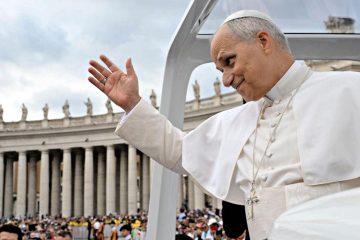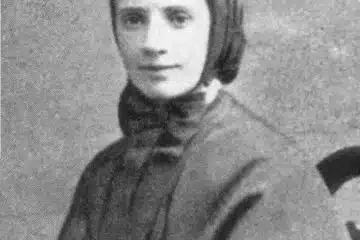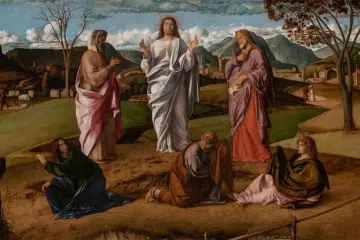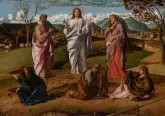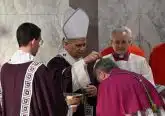Sunday Scripture: Marriage: Two Become One
By Terrance Callan
Twenty-seventh Sunday in Ordinary Time: Genesis 2:18-24; Hebrews 2:9-11; Mark 10:2-16
Because divorce is very common in our time, the teaching of Jesus that marriage is indissoluble confronts us with a challenging ideal. The distance between this ideal and our experience also makes Jesus’ teaching about marriage and divorce hard to understand even for the members of His church.
In the reading from the Gospel of Mark, some Pharisees test Jesus by asking whether it is permissible for a husband to divorce his wife. These Pharisees seem to know that Jesus’ teaching about divorce differed from the Mosaic law, as they understood it. They were enticing Jesus to contradict the law openly.
Jesus began to answer their question by asking what Moses commanded about divorce. The Pharisees told Jesus that Moses permitted divorce. Then Jesus said that Moses did so because of the people’s hardness of heart. However, from the beginning of creation it was God’s will that husband and wife should not divorce. This is clear from the nature of marriage as described in Scripture. God created human beings male and female (Genesis 1:27), i.e., the first human being was both male and female; only later was this human being divided into man and woman (Genesis 2:21-2). In marriage a man and a woman become one flesh, restoring the unity of the first human being (Gen 2:24). Jesus understands this union as something created by God, which no one should separate. Anyone who divorces and marries another commits adultery against the original spouse because divorce does not actually separate the husband and wife joined by God.
Jesus’ answer was not a simple contradiction of the law. He explained the commandment of Moses and set it aside in favor of the original will of God concerning divorce. This teaching was complex enough that Jesus’ disciples later asked him about it privately, and Jesus clarified it. This element of the story makes us realize that we are among those closest to Jesus to whom He offers additional explanation.
The reading from the Book of Genesis is one of the passages on which Jesus based His teaching about divorce. At first God made a single human being. Then God said, “It is not good for the man to be alone.” So God made animals and birds and brought them to the man. he man gave names to them all, but none was a suitable partner for him. So God cast a deep sleep on the man, took one of his ribs, and made a woman from it. When God brought the woman to the man, the man said, “This one, at last, is bone of my bones and flesh of my flesh,” i. e., she was a suitable partner because she was like him. Finally the reading comments, “That is why a man leaves his father and mother and clings to his wife, and the two of them become one flesh.”
Jesus’ prohibition of divorce can be a source of suffering for those who try to follow it. The reading from the Letter to the Hebrews suggests that this be seen as part of the suffering we endure on the way to glory, following the example of Jesus. Although Jesus, as the Son of God, was superior to the angels, for a little while He was made lower than the angels. The purpose of this was that He might taste death for the sake of all. Jesus suffered and then entered into glory in order to bring all of us to glory by following the same pattern. Thus Jesus is fully our brother.
Callan is a faculty member at the Athenaeum of Ohio.




